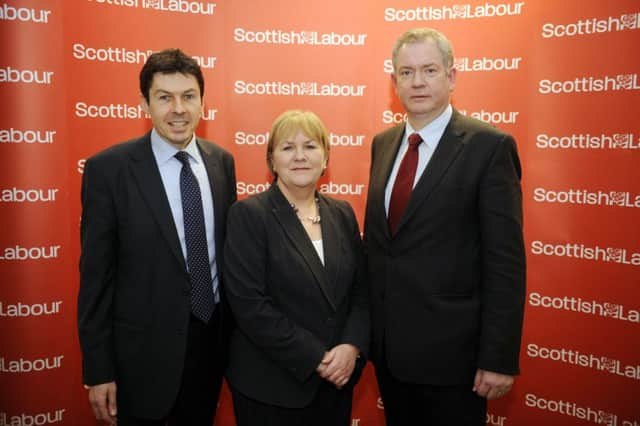Leaders: Scottish Labour needs new blood


Unite leader Len McCluskey, as an aside when he was adding fuel to the fiery debate over where Labour had lost it, said: “The real problem was that the Labour Party couldn’t have a conversation with the Scottish working people and we’ve not had that since 2008.”
There has been much speculation about where the party went wrong. Some senior party figures believe the result was at least in part due to standing shoulder to shoulder with the Conservatives during the independence referendum. Many commentators have said that they lost being the party of social justice, a mantle taken from them by the SNP, while they were distracted with navel-gazing. But a lot of commentators agree that the party has virtually sleepwalked into disaster over a number of years. It has not had strong leadership for a long time.
Advertisement
Hide AdAdvertisement
Hide AdMr McCluskey said it lost touch with its voting public in 2008 – probably 2008 was being generous – but the facts are that Labour lost the Holyrood election in 2007 and by a bigger margin in 2011.
Jack McConnell, now Lord McConnell, the leader of the Scottish parliamentary Labour group since Henry McLeish left the post following an expenses scandal, went in 2007 to be replaced by Wendy Alexander.
Wendy Alexander lasted nine months to be replaced by former minister Iain Gray. When he was elected on 13 September 2008, Iain Gray promised a “fresh start” for Labour in Scotland. Cue SNP majority.
In May 2011, Ed Miliband commissioned Jim Murphy and Sarah Boyack to undertake a root-and-branch review of Scottish Labour and four months later, Murphy and Boyack unveiled the largest package of reforms to the Scottish Labour Party.
Johann Lamont became the first overall leader of Scottish Labour, but failed to make any real headway and was replaced by Mr Murphy.
Now Ken Macintosh is to stand for election as leader – the same Ken Macintosh who shared a constituency office with Mr Murphy. Mr Macintosh lost out for the job to Ms Lamont in 2011. It has widely been speculated that the very able deputy leader Kezia Dugdale could take over from Mr Murphy.
Scottish Labour appears to be on the brink of repeating its own poor history. Having people from the inside in charge will not signal the radical reform the party must undertake. It has undertaken reform in the past and look at where it is now. Surely new blood and new thinking are an absolute must for new growth.
City’s fall is dire development
Shia militias are grouping around the Iraqi city of Ramadi with the intention of launching a counter-attack and retaking it from Islamic State. The US might say that it is confident Ramadi will be retaken, it can even say that it believes the city to be of little strategic value, but the truth is the fall of Ramadi is of massive significance.
Advertisement
Hide AdAdvertisement
Hide AdAnbar is Iraq’s biggest province, Ramadi the capital. Prime minister Haider al-Abadi recently flew to Ramadi to launch his army’s push to liberate the province. Now the capital has fallen. Calling in Shia militias is a risky tactic which would have been avoided by the largely Sunni authorities in Anbar if they possibly could have.
After Shia militias helped in the retaking of Tikrit, there were reports of militias out of control with violence and looting commonplace.
That will show just how desperate the local populace is. It should also be a wake-up call to the Western allies who are pledged to oppose the growth of Islamic State. The strategy so far, of giving a lot of air support, clearly is not having the desired effect. Islamic State has gained a lot of ground in the past six months.
There is also a growing threat to the west from terrorists trained in Syria and Iraq committing atrocities both in Europe and the US, the migrant surge across the Mediterranean providing cover for their movement.
So the time has come to consider either how to make air strikes against Islamic State forces more effective, or what other steps could be taken to provide effective action that could halt the expansion.